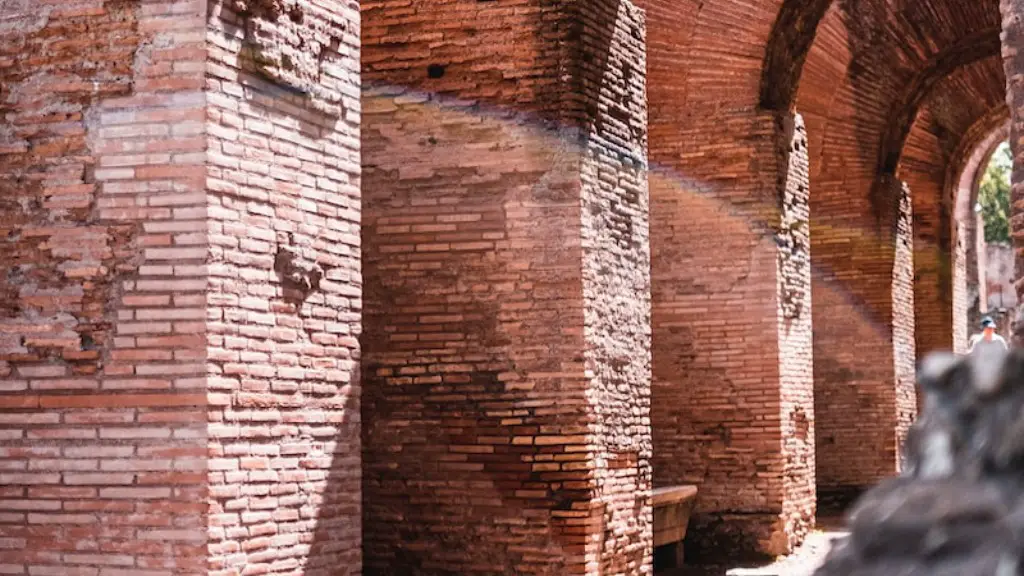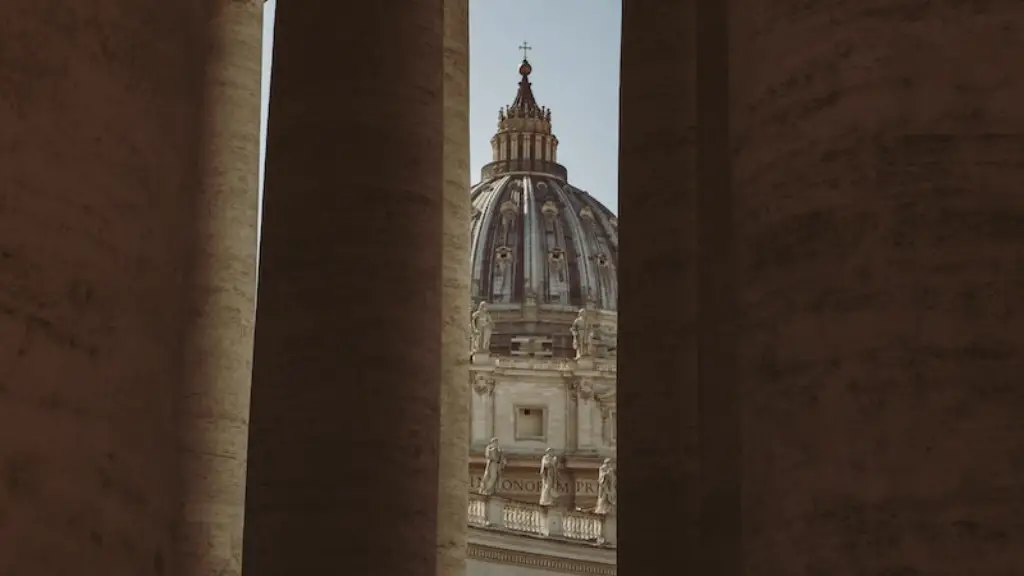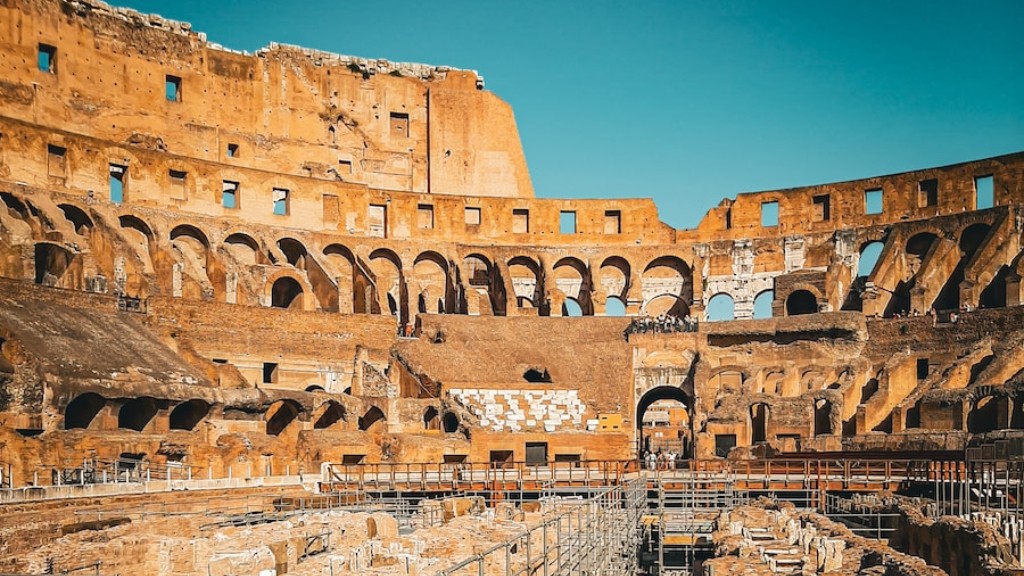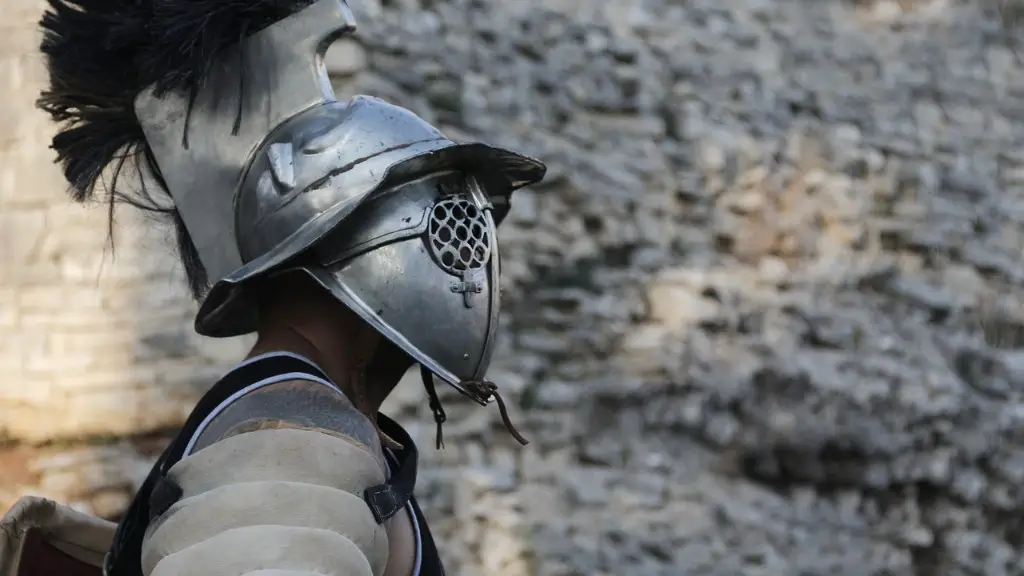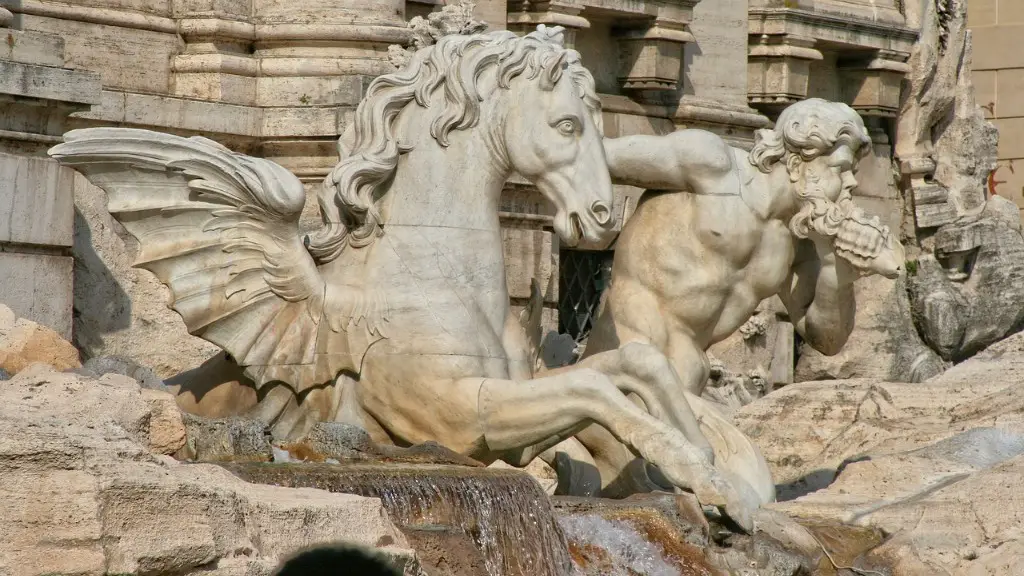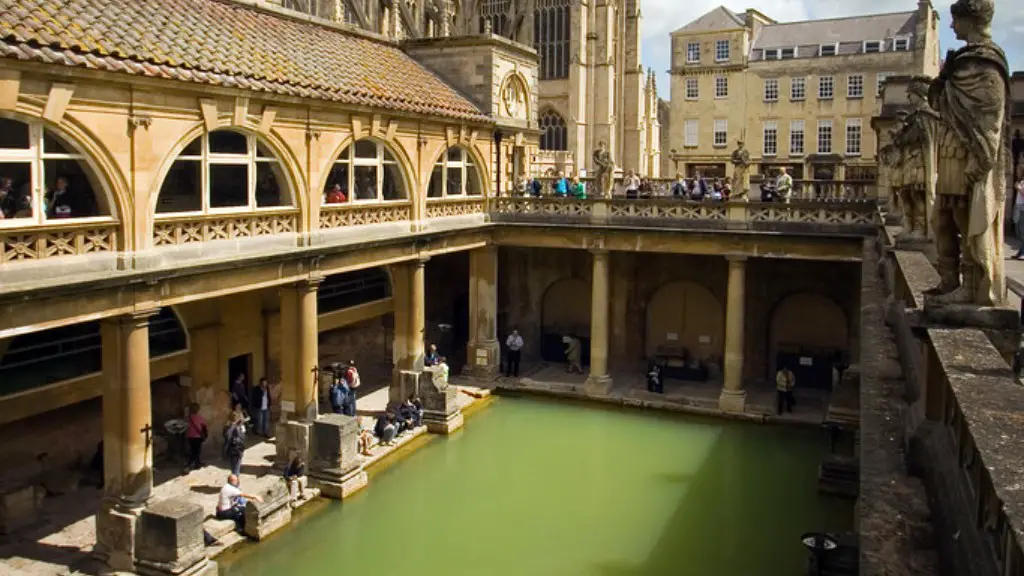Women in Ancient Rome played an important role in the daily functioning of the family. Despite the patriarchal and unequal social organization, their class and rank often gave them a certain degree of autonomy and influence over important decision making. Marriage and motherhood were the main roles of women during the first and second centuries of the Roman Empire, as well as being educated and responsible for the day-to-day running of their households. They were often responsible for the education of children, entertaining guests, and overseeing slaves during their husband’s absences.
Women had the legal right to own property. This included the right to inherit property, sell it, buy it, and accept gifts. Women could make a will which had to be approved by a guardian and witnessed by two male guarantors. Women could own slaves, as well as businesses and real estate. They were able to obtain wealth through dowries and inheritance, for example, and to use this wealth to buy and sell property.
Marriage was an important social and economic institution in Ancient Rome. Marriage was often used to form alliances and maintain control over political and economic resources. Women in Ancient Rome were expected to marry by the age of 12, and could expect to be married around the age of 16. Marriage was an economic contract between families, and marriage was negotiated between the families of the bride and the groom in order to protect their respective interests.
Women in Ancient Rome were expected to be loyal and obedient to their husbands, and were expected to remain faithful to their husbands at all times. Women were typically not allowed to remarry after being widowed, and were expected to remain single and devoted to their children. Women in Ancient Rome had the legal right to divorce their husbands, although this was considered an extreme and rare occurrence.
Women in Ancient Rome could occupy some positions of great power and status. For example, the Vestal Virgins were held in great esteem, and were responsible for maintaining the state cult of the goddess Vesta. Wealthy patrician women could hold positions of power within their families and were expected to be involved in their family’s business, which often included political matters. Wealthy women were also expected to oversee their slaves, manage large estates, and make their own contributions to the running of the household. Women could also act as brokers in political and business affairs, as well as agents in the acquisition of property and other assets.
Motherhood was an important role for women in Ancient Rome, and women were expected to be diligent and attentive to the care of their children. They were responsible for the children’s education and disciplining, providing moral guidance and teaching social etiquette. Women were also expected to nurse their children for the first few months after their birth, in order to ensure their health and wellbeing.
Despite the patriarchal social structure, women in Ancient Rome could wield considerable power and influence within their families. Marriage was an important institution for forming alliances and forming social and economic networks. Women could own property, hold positions of power, and make their own contributions to the running of their households. Women also had an important role to play in the upbringing and education of their children, and were expected to be diligent and attentive mothers.
The Role of Religion in Ancient Rome
Religion was a major factor in the lives of Ancient Romans, and was integral to their social and political life. Religion was an important political and cultural factor, as well as a way to maintain order and tradition. Religious rituals were conducted in order to ensure the safety and fertility of the community and to ensure good luck. Religion was also used as a means of courtesy and hospitality between people, and was used to show respect and loyalty.
Ancient Romans venerated over 300 gods and goddesses, each with their own unique mythologies and attributes. Documents from the period record a wide range of gods, from gods of war and of the sea, to gods of fertility and the harvest. Women had a special role in religious life; for example, hearth goddess Vesta was important in ensuring the safekeeping of the home. Women could also participate in religious rituals as priestesses and cult leaders.
Rituals for the gods and goddesses were held publicly, as well as in the home. Important festivals, such as the Saturnalia and Vestalia, were celebrated with parades, sacrifices, food, and other offerings to the gods. Women often held the role of priestess during these rituals, and were responsible for honoring the gods and offering sacrifices. Women were also important in the journey to the afterlife, as they were often the ones to bury their dead relatives and offer food and drink as a part of the funeral rites.
Religion was an important part of Ancient Roman life, and women had an integral role to play in religious life. Women were involved in rituals, festivals, and offerings to the gods and goddesses, as well as in burial and funeral rites. Religion was a way to create bonds between different communities, and to express uncertainty and fear about the powers of the gods.
The Role of Education in Ancient Rome
Education in Ancient Rome was highly valued and was seen as essential for gaining power and prestige in society. Education was available for both boys and girls, although girls were often expected to focus on home and family matters, as well as domestic duties. Education was seen as a means to gain knowledge and understanding, to improve one’s social status, and also to advance one’s career. Education was available in public schools, as well as in private tutoring.
Education in Ancient Rome was focused mainly on the formation of a strong moral code. Rhetoric and philosophy were studied, as well as science, mathematics, and literature. Boys were also taught skills such as hunting, riding, and swimming, while girls were mainly taught domestic duties such as spinning and weaving. Poetry and music were also important parts of education, and were seen as a sign of social refinement. Women were also taught horse riding, which was seen as a symbol of power and status.
Women in Ancient Rome were not granted the same level of education as men. They were mainly trained to run their households and to fulfill their roles as wives and mothers. However, some women received a basic education in the basics of reading and writing, and higher education was available to educated families. Women from wealthy families were given access to tutors and private schools, and educated women could attain positions of power and influence.
Education in Ancient Rome was important for gaining power and influence in society. Education was available to both boys and girls, although girls were usually expected to focus on home and family matters, while boys were taught more academic subjects. Despite the fact that not all women received equal access to education, some women from wealthy families were able to receive private tutoring and public schooling.
Women in Politics
Women in Ancient Rome could hold positions of power and influence within their families, but were not granted the same political rights as men. While women were expected to advise their husbands in political and economic matters and to oversee their family’s estate, they could not own land, or hold public office or the military consulship. Women could, however, participate in some public ceremonies, such as the Vestalia, and could also act as mediators between men in order to establish peace.
Although they could not directly take part in politics, some women did become influential political figures. For example, Luperca, the wife of Tarquin, was an influential political figure in Ancient Rome. She was known for her courage, intelligence, and independent spirit. Livia Drusilla, the wife of Augustus, was also a powerful political advisor to her husband and was known for her achievements in diplomacy and strategy.
Women in Ancient Rome were limited in their political rights and power, but some women did gain influence and wield power within their families and households. Wealthy women could access private education and take an active role in the workings of their family, while some women from influential families took part in public ceremonies and could act as mediators to bring peace.
Women’s Legacy
Despite the patriarchal structure of Ancient Roman society, women in Rome managed to achieve a certain degree of autonomy, influence, and power within their family and society. They had the legal right to own property and to make wills, and were expected to be diligent and obedient mothers and wives. Women were involved in religious rituals, educational activities, and even some elements of politics. Although much of their power was limited, they still managed to make their mark on the culture, leaving behind a legacy of courage, strength, and independent spirit.
The legacy of Ancient Roman women has continued to influence the modern world. Women today gain recognition and respect for the physical, emotional, and intellectual contributions they make to society. The stories of Ancient Roman women remind us of their resilience and courage, and of the importance of honoring their legacy and recognizing their importance in society.
Women in Ancient Rome left behind a legacy of courage, strength, and independent spirit. Despite their limited ability to take part in decision-making and political power, women managed to achieve a certain degree of autonomy and influence within their families and society. Their legacy continues to be felt in the modern world, and is still a powerful reminder of their important and continuing contribution.
